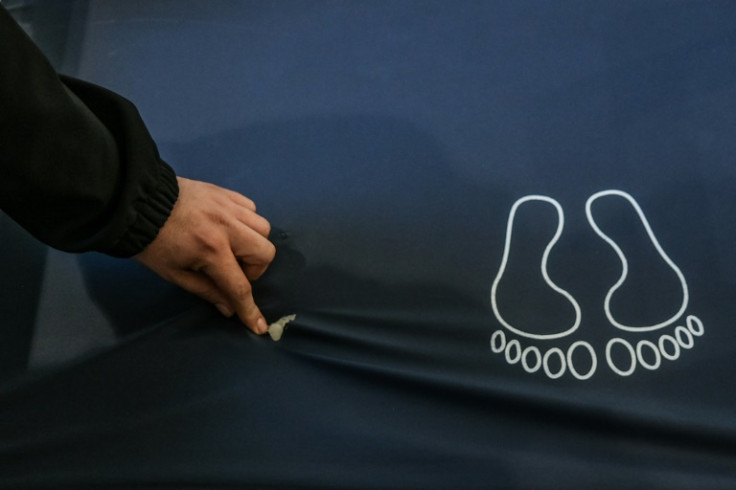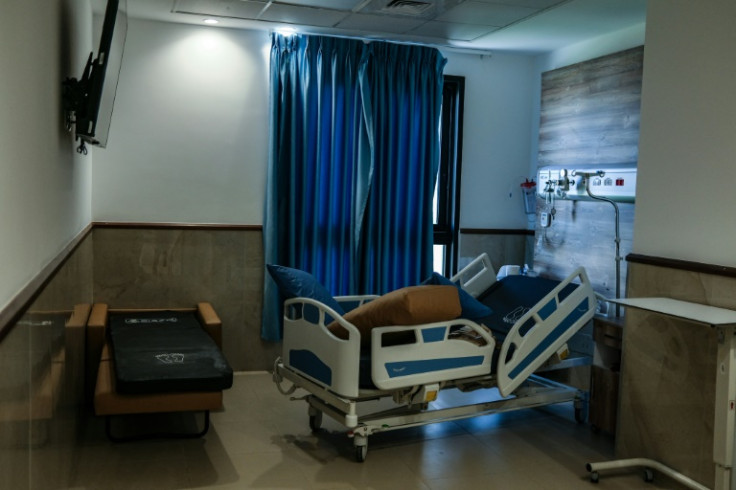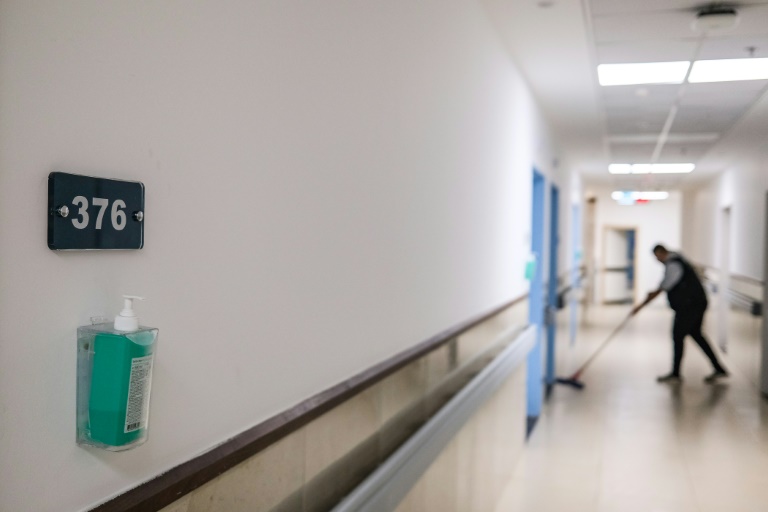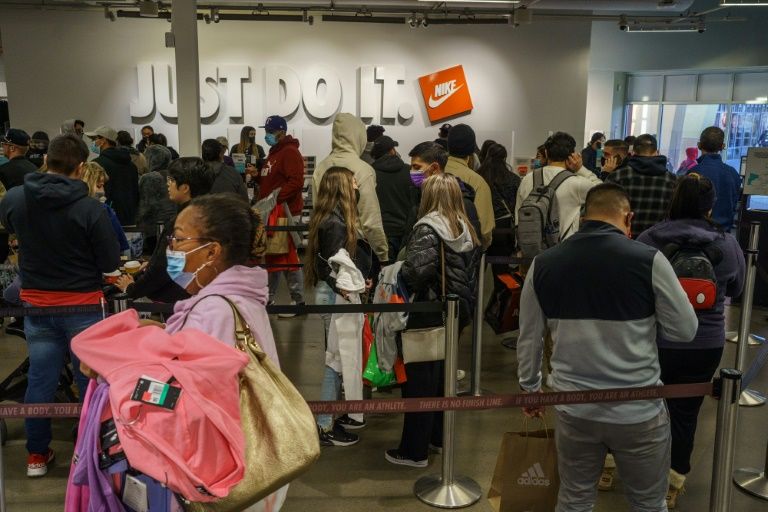A climate of fear pervades a hospital in the occupied West Bank city of Jenin, where patients and doctors are reeling from last month’s deadly raid by Israeli agents disguised as medics.
At the rehabilitation ward at Jenin’s Ibn Sina hospital, two patients recalled hearing the screams of a nurse as Israeli forces reached the third floor.
“I opened the door and saw a man. I didn’t know they were special forces,” said a patient, a grey hoodie pulled up over his head to conceal his face. “The man was choking the nurse with his hand and hit her with the butt of his gun.”
His account matched that of an elderly patient, speaking to AFP while exercising along the corridor clutching a walking frame, who recalled hearing shouting while he stayed put in his room.
Neither knew that through a sky-blue door just metres away, the Israeli unit shot dead three Palestinians, all militants, including a paraplegic patient hospitalised for months.
“It’s toughest at night,” said the patient, who had been shouted at by the undercover agents to shut his door during the assault.
All but one person in the hospital spoke to AFP on condition of anonymity, as they were worried about their safety.
Across the ward, room 376 had been scrubbed clean and lay empty.
Only on closer inspection were bullet holes visible in the abandoned hospital bed and an adjacent chair where the young men had been shot.
One of the staffers showed AFP photos on his phone of a bullet, another of flesh left on the bed in the January 30 raid.
A medic said he was approached by a man dressed as a doctor, who spoke perfect Arabic and showed the ID pinned to his chest before asking him to unlock room 376.
Inside were militants Basel Ghazawi — unable to walk after being shot in October — his brother Muhammad Ghazawi and friend Muhammad Jalamnah.
The Israeli military justified the killing inside a medical facility, which are granted special protection under international law, by saying the trio were “terrorists” who were “hiding” in the hospital.
The World Health Organization said it was “appalled”.
Such an attack “creates fear and is dangerous for health workers and patients”, said Rik Peeperkorn, the agency’s envoy for the Palestinian territories.
“It reduces the trust in health workers and hospitals, putting them in danger, and also diminishing confidence in the health system, therefore decreasing people’s access to care,” he said in a February 2 statement.
While Ibn Sina has continued to function, serving the Jenin area of the northern West Bank, there was palpable unease compared with earlier AFP visits.
Tawfiq al-Shubaki, head of the surgery department, admitted the staff “feel scared” and a sense of “insecurity”.
“It’s a tough feeling for the medical personnel, especially as it reflects negatively on the clinical staff themselves and on the patients,” he said.
Medics in Jenin have become accustomed to dealing with emergencies, as people wounded during Israeli military raids in the nearby refugee camp are frequently rushed to Ibn Sina.
They must balance such crises alongside care for other patients, such as those in the cardiology department, intensive care or neonatal ward, all of which have been affected by the raid, according to Shubaki.
“You should feel like you’re in your workplace. What happened impacts the effectiveness and the performance of the medical team,” he said.
The Jenin raid came against the backdrop of the war in Gaza, during which Israeli soldiers have repeatedly raided hospitals.
Speaking in the West Bank city of Ramallah, seat of the Palestinian Authority, Health Minister Mai Kayla said the same pattern was being repeated.
“Our message is to stop (Israel) abusing the health system in Palestine. Stop the aggression on the hospitals in Gaza as well as in the West Bank — they started to do it also in the West Bank,” she said during a February 7 rally.
As well as being afraid of a repeat of the special forces raid — the first such operation in eight years — the killings have also created suspicion among patients and medics.
Not knowing how Israeli agents plotted their assault, some have been speculating that a hospital insider could have collaborated with special forces.
“For more than a week this informant has been in the imagination, and on my mind,” said the patient, still in his hospital room.
“I’m terrified.”
AFP

AFP

AFP






